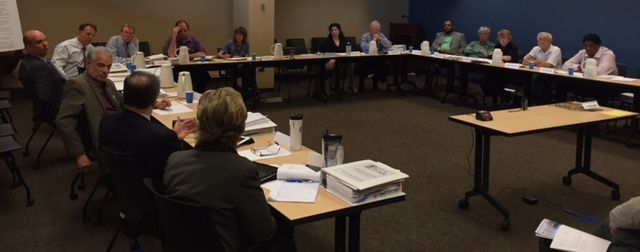A citizens group proposes removing limits on city tax rates and adding seats to the Tucson City Council.
The Charter Review Committee proposed several changes to the city charter, which is essentially Tucson’s constitution. The charter can only be changed with voter approval.
The city council is expected to discuss the proposals at an April 5 meeting and likely will act quickly to send questions to the ballot in August and November.
The urgency stems from the council’s interest in raising the sales tax rate to help with city budget deficits and from a Ninth Circuit Appeals Court ruling calling the city election system unconstitutional.
TAX PROPOSALS
The citizens group put forth two possible changes to tax limits but recommends the council put only one on the ballot.
The charter sets a 2 percent cap on the city’s sales tax rate, and the city is at that ceiling.
Committee members said a change is necessary to give the council more financial flexibility.
With the current limits, in order to increase the sales tax rate the council would have to put two questions on the ballot, and both would have to pass: one question to change the limit in the charter and another to increase the rate.
The citizen group’s first choice would be to remove the cap altogether, eliminating the ceiling with no requirements to seek voter approval for a sales tax hike.
The citizen committee’s second choice would be to keep the 2 percent cap in place but allow the council to exceed the limit with voter approval. The council would then have a one-step process to ask voters for a sales tax hike instead of having to ask for a charter change each time it asks for a tax increase.
The committee additionally recommended allowing the city to take loans backed by future sales tax revenue, which is currently prohibited in the charter.
It also recommended exempting the secondary property tax from the current $1.75-per-$100-value limit on city property taxes, as long as state law continues to prohibit the city from asking for any increase of more than 2 percent per year.
ELECTION PROPOSALS
Again the group put forth two possible election systems but recommends the council put only one on the ballot.
Both are variations on ward-only elections.
Currently, the city has party primaries in each ward and then citywide general elections.
Here’s how the proposed options would work.
With ward-only elections, each of the city’s six wards would have party primary elections and general elections. The mayor would continue to be elected citywide. So a voter would elect his or her own council member and the mayor, instead of six council members and the mayor.
With the ward-only-plus-two system, primary and general elections would be held in each ward, but the mayor plus two additional council members would be elected citywide. So a voter would elect three council members and the mayor. A council majority vote would change to five of nine instead of four of seven.
If one of the proposed systems is approved, all council members would be elected in the same year, instead of staggered terms, beginning in 2019.
A survey of city voters last month showed 26 percent of respondents support ward-only elections.
City voters consistently have rejected ward-only elections, voting them down in 1975, 1991 and 1993, while more recent initiative campaigns in 1998, 2001 and 2003 failed to even make it onto the ballot.





